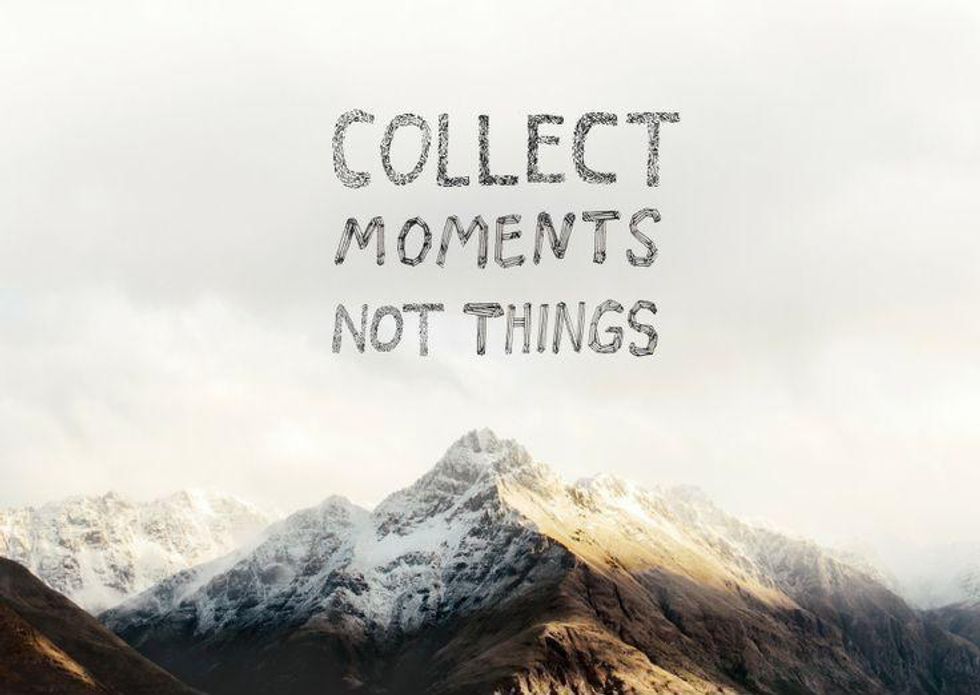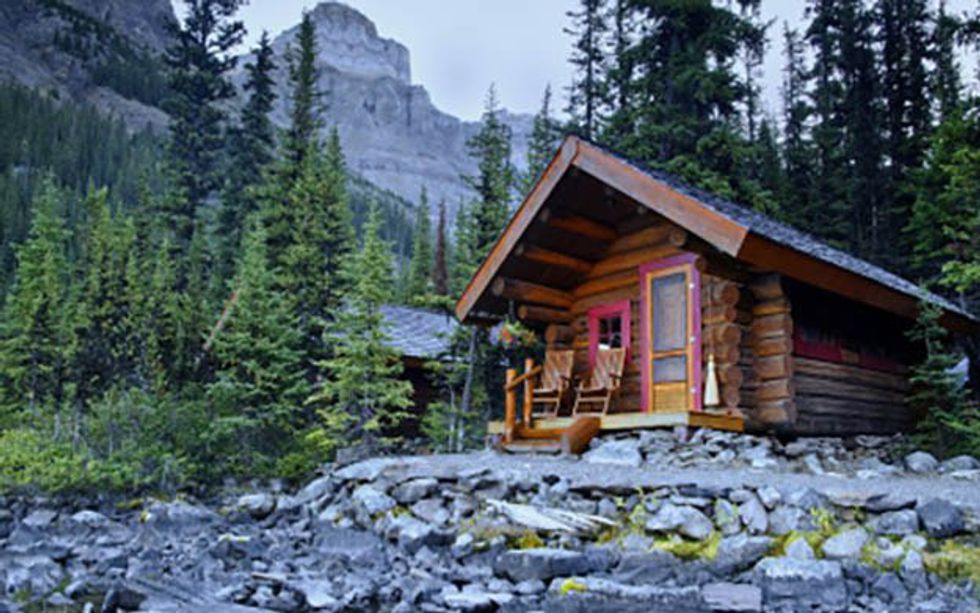Americans are not happy. A recent international study on happiness showed the United States is actually becoming less happy as time goes on. This is despite the fact that we're richer as a country than ever before. But sometimes money really doesn't buy happiness, at least not when it's being spent unwisely or isn't distributed equally. Our western lifestyle is characterized by excess -- of food, of material objects, of options, of working hours, of everything. However, there are lifestyles to be had beyond the usual confines of westernization that can help us become happier. Here are my favorite four:
1. Minimalism
Minimalism is hard to wrap your head around if you've been raised the American way. Basically, you take every material object in your possession and get rid of everything you don't absolutely need. Things like knick knacks, bookshelves, cell phones, desks, extra shoes, clothes, extra forks and knives (do you really need a 20-piece set when you live with one other person?), your second couch in the living room, your TV, everything.
There are so many things we are told that we need when we really don't. We work long hours at jobs we probably don't enjoy just to afford all these things. Look in your purse. How much money worth of makeup is in there? Glance around your bedroom. What decorations hang on the walls? Yeah those things are nice, but they're unnecessary and may not be a fair trade for the amount of time you spend working to get them.
Benefits:
Many minimalists can pack up and travel any time because they can fit all of their belongings in one suitcase. Where would you go if you didn't have to worry about renting a moving truck or packing for days? Where would you live if you didn't have to worry about losing stuff or leaving anything behind? Personally, traveling makes me happier than stuff.
Minimalists have things that are of quality. No shitty cell phone will do, because they use it for communication, Netflix, doing work off of, internet, etc. and they don't have a TV or a laptop to back it up if it breaks. We often trade quantity for quality without realizing it. Minimalists don't. They can save money by not wasting it on excess and spend more on what's actually important to them.
Minimalists can take more time off work. They don't need a giant house (remember tiny houses?) or a two car garage, so their rent bill is lower. They don't need to buy as much to have a reason to work. Less time at work means more time spent on hobbies, developing skills, or just having fun.
What could you sell right now to start yourself off?
2. Straight edge
Unhappy people generally use something to cope with their unhappiness, or need a little help relaxing. Unhappy people might also be unhappy because they're unhealthy. Straight edge combats this by cutting out the consumption of any mind-altering substances. Drugs, cigarettes, alcohol, and sometimes even coffee, sex, and addicting foods are all off-limits. It brings a whole new meaning to "clearing your head."
While straight edge has started to become associated with gangs or violent crews (there's even a gangland episode now), that's not what it's about or where it came from. It's originally a rejection of the prevalence of hard drugs in the 1980's punk scene. But you don't actually need to be any shade of punk to stop drinking, popping, shooting, or smoking.
Benefits:
Alcohol rots your liver, cigarettes your lungs, and pills your stomach. I'm pretty sure we all remember that drugs are bad (mmkay?). Ditch them and say hello to a little healthier.
You'll have more control over yourself when you need to make any type of choice, big or small, because you won't be influenced by anything other than your options. You'll have more control over the situation when you're at a party and your drunk angry friend tries to fight everyone in the bar. It's useful to have someone level-headed in the room. Plus you'll be a guaranteed DD, so everybody will get home safe and you never have to depend on someone else to drive you.
Your wallet will thank you. The average cigarette smoker spends over $2,000 a year. Weed is like $60 a quarter. And for booze, the sky is the limit with price.
3. Veganism
Veganism is becoming more popular as people are realizing that bad food comes with bad consequences for our health, our environment, and our relationship with mother nature. Veganism is the practice of consuming (eating, buying, using, supporting) only things that don't harm animals. No meat, no dairy, no beauty products that test on animals, no fur clothing and the like.
Benefits:
You can feel good about making a difference in the world. Although one person makes a relatively small difference, over a lifetime that turns out to be big. And as a whole movement of people doing it, it becomes huge. I've realized that we don't vote with our ballots, we vote with our money. If you don't support factory farming, don't buy the products it produces. It's something you can do every day to influence something you care about.
A plant-based diet is the healthiest thing out there and it's the queen of preventative medicine. Yes, you can get protein from things that aren't meat. Plus, health comes hand-in-hand with beauty and a long life. Keep the doctor away and your skin glowing at the same time.
4. Living off the grid
"Off the grid" generally refers to the electrical grid of cities, and more broadly to the square mile planning of cities that you don't find in rural areas. It's a rejection of accepting public utilities and providing them for yourself instead. Trade in DTE bills for solar panels and a propane system; trade in city plumbing for a septic tank and a well. Becoming self-sufficient is liberating and works just as well as city services.
Benefits:
Although it's expensive to set up, in the long run you'll save boat loads of money on bills. It's the same mentality of "why would I pay rent for the rest of my life when I could buy and own a house one day?" Why pay the city for a service forever when you could do it yourself? An investment goes a long way here.
When there's a power outage, guess what you still have? When cities like Flint (and others) waste taxpayer money and poison the water, guess what you don't have to deal with?
Living off the grid inspires you to be autonomous in other aspects of life, too. Once you realize what you can do on your own, you do more. Like growing your own food and building your own projects (furniture, sheds, etc.) instead of relying on someone else.
Do these sound crazy? Well so does continuing in a lifestyle that doesn't make you happy.























